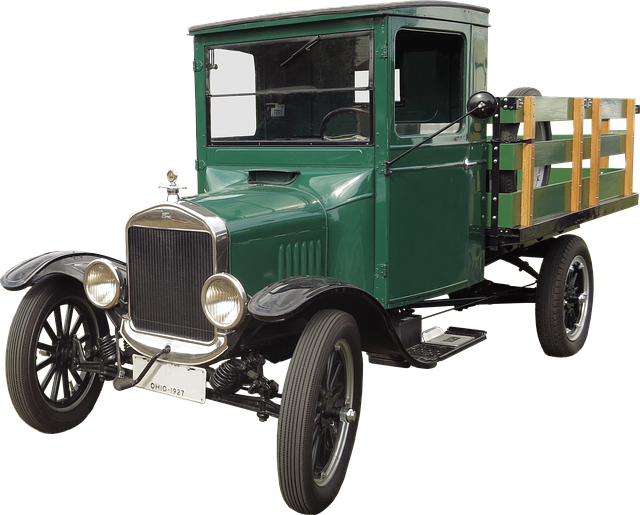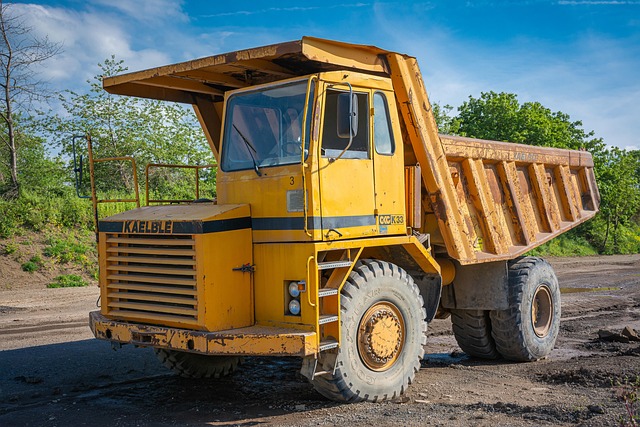Commercial vehicle coverage is an indispensable tool for trucking businesses, offering specialized insurance that goes beyond standard auto policies. It protects against unique risks like property damage, injuries, cargo loss/theft, and natural disasters. Insurers tailor policies to diverse truck types (vans to semi-trucks) and uses, considering load capacity, routes, and hazards. Well-designed policies include enhanced liability for hazardous materials, regular maintenance, safety technologies, and compliance with industry standards. Ultimately, effective commercial vehicle coverage safeguards assets, mitigates losses, and ensures safe trucking operations.
In today’s diverse trucking industry, ensuring comprehensive commercial vehicle coverage is paramount for businesses navigating evolving regulations. This article provides an in-depth guide to understanding the unique needs of various truck types and crafting tailored insurance policies. We explore essential components of commercial vehicle coverage, delving into specific risks associated with different truck classifications while highlighting key considerations for adequate protection and compliance.
- Understanding Commercial Vehicle Coverage: A Comprehensive Overview
- Identifying Different Truck Types and Their Specific Needs
- Crafting All-Encompassing Insurance Policies for Diverse Trucks
- Key Considerations for Ensuring Adequate Protection and Compliance
Understanding Commercial Vehicle Coverage: A Comprehensive Overview

Commercial vehicle coverage is a critical aspect of managing risks and ensuring operational continuity for businesses involved in trucking and transportation. It encompasses a wide range of insurance policies designed to protect against various liabilities and damages specific to commercial vehicles, including trucks, trailers, and semi-trucks. Understanding these coverages is essential for business owners to make informed decisions regarding risk management strategies.
This type of coverage goes beyond standard auto insurance, addressing unique risks associated with commercial operations. It includes liability protection for property damage or personal injuries caused during accidents, as well as medical payments for injured parties. Comprehensive policies may also cover specific perils like cargo damage, theft, or loss due to natural disasters. By understanding and implementing the right commercial vehicle coverage, businesses can safeguard their assets, minimize financial losses, and maintain a safe working environment for drivers and others on the road.
Identifying Different Truck Types and Their Specific Needs

In the realm of commercial vehicle coverage, understanding the diverse landscape of truck types is paramount. Each truck, from the sleek delivery vans to the towering semi-trucks, operates within its own unique parameters and presents specific risks. Identifying these variations ensures that policies can be tailored to meet the precise needs of each truck type, enhancing safety and reducing potential liabilities.
For instance, smaller delivery vehicles may require comprehensive coverage focusing on driver protection and liability for goods in transit. Conversely, larger trucks, often involved in long-haul transportation, necessitate policies that account for wear and tear, mechanical failures, and the unique risks associated with transporting diverse cargoes over extensive distances. Such nuanced understanding allows insurers to design policies that offer adequate protection, catering to the specific requirements of each truck category within the broad spectrum of commercial vehicle coverage.
Crafting All-Encompassing Insurance Policies for Diverse Trucks

In crafting insurance policies for trucks, the diversity of these vehicles necessitates a multifaceted approach to ensure comprehensive coverage. Commercial vehicle coverage must account for various types—from lightweight delivery vans to heavy-duty 18-wheelers—each with unique operational characteristics and risks. An all-encompassing policy should consider not just the physical attributes but also the specific uses, such as local hauling, long-haul trucking, or specialized transport. This involves tailoring different risk profiles to determine appropriate coverage limits for liability, collision, and comprehensive damages.
Additionally, commercial vehicle coverage should incorporate specific considerations like cargo protection, driver safety, and compliance with regulatory standards. Policies must address the unique challenges posed by diverse truck operations, such as exposure to harsh weather conditions, frequent load changes, or the use of advanced technologies. By meticulously designing policies that cater to these nuances, insurance providers can offer tailored protections, ensuring peace of mind for truck owners and operators while mitigating potential risks on the road.
Key Considerations for Ensuring Adequate Protection and Compliance

When crafting comprehensive policies for commercial vehicle coverage, several key considerations come into play to guarantee both adequate protection and compliance with relevant regulations. One of the primary focuses should be on tailoring insurance plans to accommodate the diverse needs of various truck types—from cargo carriers to specialized haulers. This involves assessing specific risks associated with each vehicle category, such as load capacity, route frequency, and potential environmental hazards. For instance, policies for trucks operating in hazardous material transport should include enhanced liability coverage and specific training requirements for drivers.
Furthermore, staying updated on evolving industry standards and legal frameworks is essential. Regularly reviewing and adjusting policies to align with changes in commercial vehicle regulations ensures that businesses and their assets remain compliant. Incorporating provisions for regular maintenance checks, driver fitness programs, and advanced safety technologies can significantly reduce risks and mitigate potential losses. Ultimately, a well-designed commercial vehicle coverage policy should offer a balanced approach, providing sufficient protection while considering cost-effectiveness and the unique operational demands of different truck types.
Commercial vehicle coverage is a complex yet essential aspect of managing trucking operations. By understanding the diverse needs of various truck types and crafting tailored insurance policies, businesses can ensure their fleet’s protection and navigate regulatory compliance. This comprehensive approach not only safeguard against financial losses but also fosters a safe and efficient transportation ecosystem.
